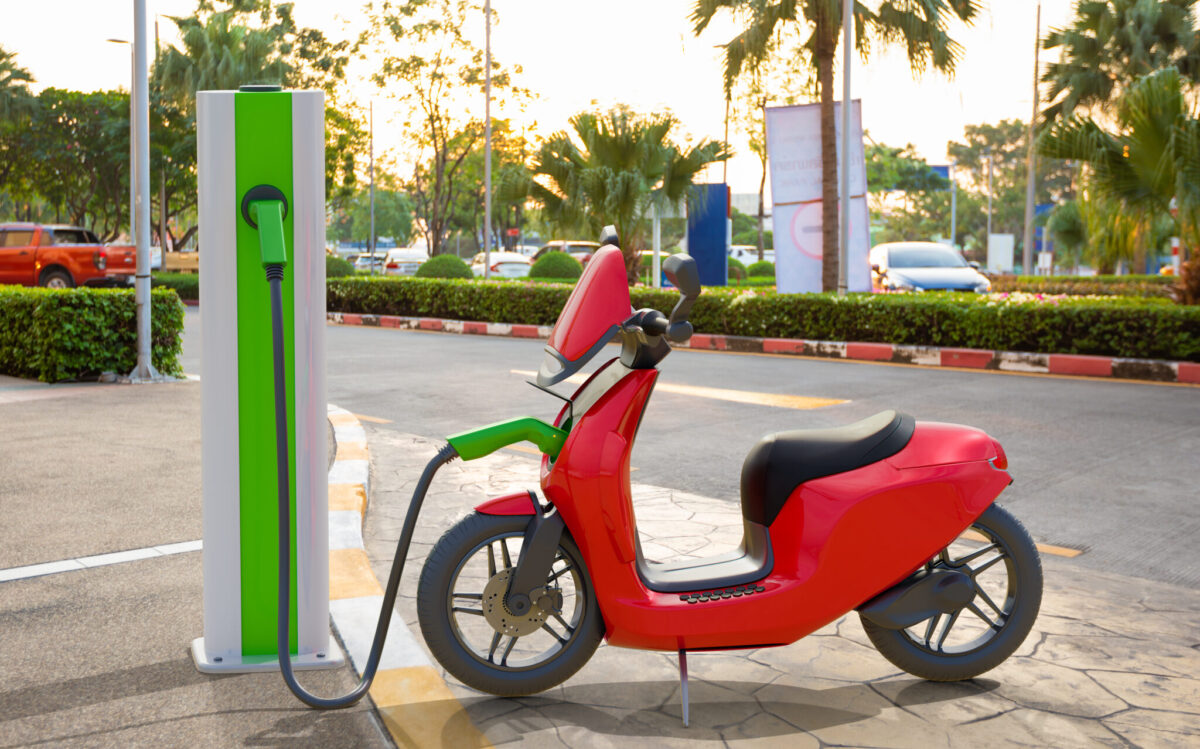Driving Greener Mobility

Photo credit: kinwun via Adobe Stock Images
Policy Context
Motorcycle taxis (moto-taxis) are important for both meeting public transportation needs and supporting economic livelihoods in many low- and-middle income countries. However, while petrol motorcycles may have better gas mileage and contribute less congestion than cars, they emit significantly more pollutants, leading to poor air quality and attendant health impacts.
Electric motorcycles (e-motos) hold promise for replacing petrol moto-taxis, as they carry the mobility and socioeconomic benefits of moto-taxis while reducing the negative environmental externalities. Yet for the benefits of e-motos to be realized, people must adopt the new technology and use it to replace kilometers that would have otherwise been driven on petrol motorcycles. Providing a subsidy on the “fuel costs” of operating e-motos may motivate adoption and usage.
Study Design
This study will pilot an adoption offer packaged with a promotional period of reduced operating costs (reduced battery swap prices) to examine effects on e-moto adoption, usage, socioeconomic benefits and ability to meet public transportation needs, and to relate these to an optimal subsidy.
Following a collection of baseline mileage data from current petrol moto-taxi drivers, the researchers will conduct a randomized evaluation in collaboration with a firm based in Kigali, Rwanda. The firm offers e-motos for sale along with a battery swap service. Researchers will offer a fuel subsidy with the following groups. Endline surveys will be conducted with all motorcyclists.
- No offer
- Standard: Standard adoption offer, with “standard” battery swap prices for 60 days
- Price: Adoption offer with “guaranteed promo” of 38% decrease in per-swap battery
- Surprise: Standard adoption offer, but after take-up, the “guaranteed promo” of 38% decrease in per-swap battery prices for 60 days is given as a surprise (Karlan and Zinman, 2009)
Results and Policy Lessons
In Rwanda, the government is actively encouraging taxi drivers to adopt electric vehicles. The partner also finds that the waitlist for electric motorcycles is actively filled up, and once electric motorcycles become available again, the overwhelming majority on the waitlist choose to “adopt.”
In this light, researchers switched their focus from an RCT on adoption to understanding the motivations underlying labor supply decisions for motorcycle taxi drivers in Rwanda, focusing on electric motorcycle taxi drivers. They are particularly interested in how an increase in aspirations may affect daily goals, which in turn would increase effort and income for taxi drivers.
The team is in conversation with the partner company as well as with Innovations for Poverty Action to begin this secondary study.

